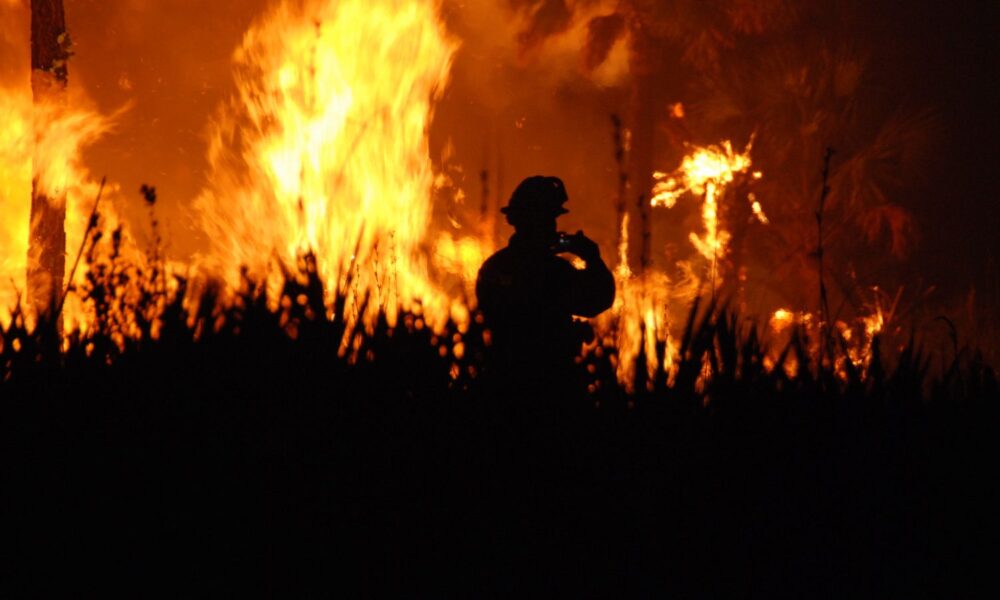The phrase “Loss and Damage“ has been bandied about in international climate negotiations since 1991 when Vanuatu, a small island nation in the South Pacific, called for developed countries to assist in shouldering the financial burden arising from climate change impacts. Today, more than 30 years later, the UN Framework Convention on Climate Change is still grappling with the question of who should fund a Loss and Damage initiative, where it should reside, and how the money should be allocated. As the global community comes together to address questions about Loss and Damage head on, the vital role of science in Loss and Damage discussions is more apparent than ever, providing a beacon of clarity amid the ongoing deliberations.
Navigating loss and damage
Loss and Damage encompasses a spectrum of devastating impacts from climate change, including floods, heatwaves, wildfires, storms, and slow-onset events such as sea-level rise. The consequences of climate change are not distributed equally. They disproportionately affect vulnerable, low-income nations. Loss and Damage entails both economic and non-economic losses, ranging from infrastructure damage and economic setbacks to the loss of cultural heritage and biodiversity.
Since agreeing in principle at the 27th Conference of the Parties (COP27) in 2022 to establish a Loss and Damage Fund, nations have been negotiating on the details of how to operationalize it. A meeting in early November resulted in a lopsided outcome forced by richer nations including the United States, with a set of recommendations for adoption at COP28. Nations must agree on a Loss and Damage funding mechanisms to cover climate change impacts that have already caused harm. At the same time, there has been an increase worldwide in climate litigation , which—alongside the COP process—has the potential to aid impacted communities.
Science has a clear role in helping to understand and determine funding allocations for Loss and Damage providing the evidentiary backbone for accountability and funding mechanisms. That said, it’s important to acknowledge that scientific research is not uniformly distributed worldwide and not all impacts are equally understood. Recognizing the strengths and limitations of scientific research in the Loss and Damage context is essential to prevent the imposition of unrealistic legal burdens of proof, particularly on countries in the Global South. Scientists and public officials can help to ensure that research becomes a tool for equity, not exclusion, as the world navigates the complexities of climate justice and international responsibility.
The science of loss and damage
Loss and Damage can be informed by all kinds of research. Increasingly, the scientific community has been weighing in on the topic, for example in publications here, here, and here. Drawing from this research and the Union of Concerned Scientists’ long-term engagement in this work, I outline three main research areas below that could play a key role in understanding and quantifying loss and damage.
Climate Attribution Science: Attribution science, both source and event attribution, can play a pivotal role in Loss and Damage research by unraveling the intricate web of cause and effect in the realm of climate change impacts. Attribution science is instrumental in identifying the sources of heat-trapping emissions, linking them to specific nations and corporations, and tracing their contributions to climate impacts and damages. By establishing a causal chain between human activities and climate-related disasters, attribution science provides a solid foundation for assigning responsibility. This is particularly significant in the context of Loss and Damage, where understanding the origins of emissions is essential for holding polluters accountable for their contributions to the unfolding climate crisis.
Moreover, attribution science can contribute to developing effective policies and interventions by illuminating specific pathways through which emissions translate into tangible impacts. Doing so allows policymakers and stakeholders to tailor mitigation and adaptation strategies based on a more precise understanding of the sources and mechanisms driving climate-related damages.
Research on Non-Economic Loss and Damage: Research on non-economic Loss and Damage delves into the multifaceted impacts of climate change beyond monetary losses, including cultural heritage, social practices, and ways of life. This area of research seeks to understand the intangible, yet profoundly significant, losses experienced by communities beset by climate-related challenges. As societies grapple with slow-onset events such as sea-level rise and prolonged droughts, empirical research becomes a useful tool to identify instances of non-economic losses. By examining the profound disruptions to cultural practices and heritage caused by environmental changes, researchers can propose activities and interventions that go beyond economic considerations.
The insights gained from research on non-economic Loss and Damage can directly inform measures and funding strategies. For instance, understanding the cultural implications of climate-induced displacement can contribute to the development of relocation plans that are sensitive to the unique needs of affected communities. This type of research can highlight the importance of preserving cultural practices and heritage amid environmental change and guide the allocation of funds toward initiatives that support community resilience.
Economic Research: Research can help calculate the economic loss from such climate impacts as hurricanes, wildfires, and floods. By examining the direct and indirect costs incurred by communities, businesses, and governments, researchers can assess the financial implications of damage to critical infrastructure, loss of agricultural productivity, mounting health care costs, and the overall economic disruption caused by extreme weather events. The insights gleaned from economic loss research can provide a foundation for estimating funding needs for Loss and Damage initiatives, allowing policymakers worldwide to develop targeted financial strategies.
Through the use of statistical and economic modeling, researchers can disentangle the contributions of anthropogenic climate change from other factors influencing the severity and frequency of disasters. For example, a May 2021 study in Nature Communications found that an additional $8.1 billion in damages during Hurricane Sandy in New York area were a result of climate-related sea-level rise. Such a nuanced understanding of the link between climate change and economic losses not only bolsters the scientific basis for climate policy but also aids in determining fair and equitable financial responsibilities.
While science serves as an invaluable aid in understanding and addressing the complexities of Loss and Damage, it is important to acknowledge its limitations. Relying solely on scientific metrics as a stringent bar could inadvertently impede progress in regions with limited baseline data or existing studies. It is critical to recognize the diversity of vulnerabilities and the varying capacities for scientific research across the globe. In many instances, particularly in climate-vulnerable communities in the Global South, a lack of comprehensive data may hinder the application of traditional scientific metrics. Therefore, science should be viewed as a guiding tool rather than an impossible bar, ensuring that funds are accessible to areas where empirical evidence may be sparse. Embracing a flexible and inclusive approach that combines scientific insights with community-based knowledge is paramount to navigating the intricacies of Loss and Damage equitably and fostering global resilience.
Holding nations and fossil fuel companies accountable
In the urgent pursuit of addressing climate change-related Loss and Damage, science serves an important role to offer evidence and insights for informed decisionmaking. To forge a path toward climate justice, the imperative of holding nations and corporations accountable cannot be overstated, underscoring the indispensable role of science in sculpting a sustainable and equitable future.
In advance of international negotiations at COP28, it is disheartening to see that some affluent nations, including the United States, appear more focused on evading or minimizing their historic and continued responsibility than engaging in good-faith negotiations for just outcomes. In a collective call to action, more than 650 scientists have urgently appealed to President Biden to commit to more ambitious US climate actions ahead of COP28 that emphasize the critical need to operationalize the Loss and Damage Fund, alongside three other key asks. As Loss and Damage discussions move forward, it is crucial that scientists assess how their work aligns with the discourse on Loss and Damage and recognize their potential to inform these discussions and enhance equity. By fostering collaboration and accountability, scientists can play a pivotal role in addressing devastating climate damages already incurred and future damages linked to past and current emissions that may now be unavoidable.

